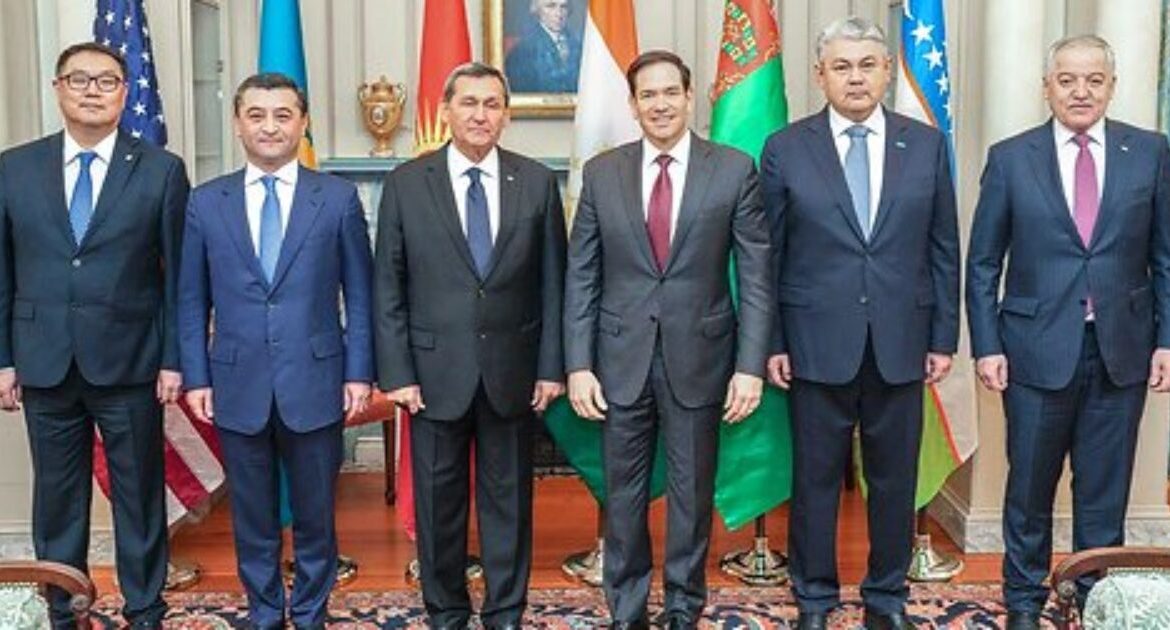
WATCH: Marco Rubio Just Made a WORLD-CHANGING Speech on U.S. Foreign Policy


WATCH: Secretary Rubio delivers remarks at the C5+1 welcome reception
The State Department’s Benjamin Franklin Room hosted a landmark event celebrating stronger U.S. ties with Central Asia.
The C5+1 Welcome Reception brought together officials from Kazakhstan, Uzbekistan, Tajikistan, Turkmenistan, and the Kyrgyz Republic alongside senior U.S. leaders.
The evening marked a renewed era of cooperation between Washington and the five republics—an effort to expand America’s reach in a region often overlooked by past administrations.
WATCH: Trump REVERSES China’s Edge in the U.S. Economy
The Trump administration’s approach reflects a broader shift in U.S. foreign policy.
Rather than focusing solely on long-standing alliances, it prioritizes partnerships with emerging regions that share American interests.
Secretary of State Marco Rubio, Deputy Secretary Chris Landau, Senator Jim Risch, and Special Envoy Sergio Gor emphasized the growing importance of Central Asia, both strategically and economically.
The event underscored a clear message: the United States seeks genuine, balanced relationships with nations striving for independence from Russian and Chinese pressure.
Deputy Secretary Landau described Central Asia as a region rich in opportunity and untapped potential.
The five nations, now independent for thirty-five years, are positioned to become vital partners in trade, energy, and security.
The C5+1 platform—created ten years ago—has evolved into the centerpiece of U.S.-Central Asia relations.
It promotes collaboration in business, infrastructure, and education, helping each country strengthen its sovereignty and economy.
Senator Risch reinforced bipartisan support for closer engagement. He announced legislation to repeal Cold War–era restrictions that still limited economic cooperation.
Removing those barriers would allow U.S. companies to invest and trade more freely, expanding access to new markets while supporting regional growth.
The move signaled a shared commitment to modernize relations and to treat Central Asia as a partner, not a dependency.
Special Envoy Gor spoke about building direct lines of communication between the White House and the region’s leaders.
He described recent visits to Uzbekistan and Kazakhstan as highly successful, opening doors for investment, education, and technology partnerships.
A business summit at the Kennedy Center was expected to produce new trade agreements creating jobs and increasing exports for both sides.
Secretary Rubio closed the evening by emphasizing that foreign policy works best when nations’ interests align.
America seeks new markets for innovation and trade; Central Asia seeks diversification and development. Together, those goals create stability, opportunity, and shared prosperity.
The reception symbolized more than diplomacy. It marked a turning point in U.S. engagement with Central Asia—an alliance grounded in strength, fairness, and mutual respect.
The post WATCH: Marco Rubio Just Made a WORLD-CHANGING Speech on U.S. Foreign Policy appeared first on The Gateway Pundit.
